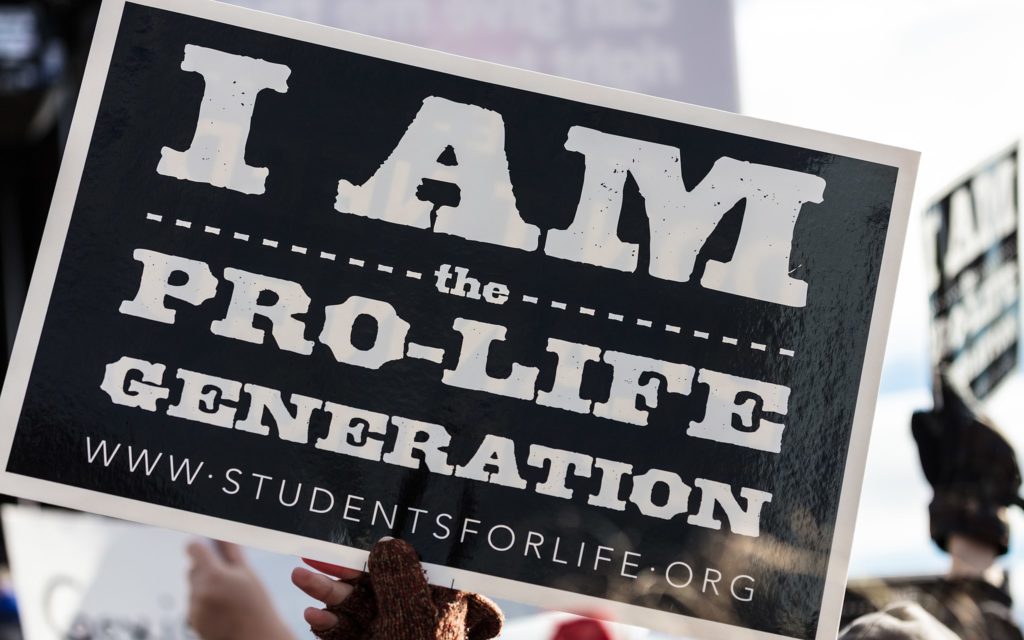
Published September 1, 2021
Abortion-rights supporters are outraged today over the fact that the Texas Heartbeat Act took effect at midnight, because the Supreme Court has yet to act on an emergency petition from abortion providers demanding that the Court block the law. The bipartisan statute prevents state officials from enforcing the law and instead grants private citizens the right to sue someone who helps a woman obtain an abortion, including the abortionist.
On Bench Memos yesterday afternoon, Ed Whelan had an excellent summary of the bill and the legal challenge, in which he makes the important point that the abortion providers challenging the statute “are trying to game the Court to rule on issues that, because of their own litigation strategy, no lower court has even addressed.” In other words, abortion providers “are seeking an advisory opinion in a case that should have been dismissed at the outset for absence of a live controversy.”
Despite what some panicked abortion supporters have argued this morning, the absence of Court action on the Texas law is not evidence that a majority of the justices are poised to strike down Roe v. Wade in the upcoming Dobbs v. Jackson Women’s Health Organization, to be heard next term. In reality, this outcome is a product of the legal strategy the abortion providers pursued: waiting to challenge the Texas statute and then rushing to the Supreme Court at the eleventh hour.
But the outraged reaction from abortion supporters to the Texas law’s being allowed to take effect is a helpful insight into what we might expect to witness if the Court does its job and reverses the decades of legal inanity propping up the shambles of Roe. In an email this morning fundraising off the “emergency” in Texas, Planned Parenthood described the present situation like this:
Someone will find out they’re pregnant, and they’ll know that abortion is the right choice for them. They may only be six or seven weeks pregnant — pretty early to find out. But when they go to schedule an appointment with an abortion provider, it will already be too late.
Because starting today, the majority of people in Texas seeking an abortion will be denied the care they need because of politicians trying to control their bodies and their personal decisions.
Of course, the “care they need” here refers to a procedure that intentionally ends the life of an unborn child. And rather than controlling “people’s” bodies and decisions, politicians are seeking to regulate a procedure that, again, intentionally ends the life of an unborn child. That Planned Parenthood disguises this reality in euphemisms is, as ever, especially telling.
Meanwhile, the fundraising plea from the American Civil Liberties Union this morning insists that the effects of the Texas law “will be immediate and devastating.”
This extreme and blatantly unconstitutional law bans abortions at six weeks – before many people even know they are pregnant. But, there’s more. The law also actively encourages private citizens to act as bounty hunters by awarding them at least $10,000 if they successfully sue another person for providing an abortion or assisting someone who gets an abortion at around six weeks of pregnancy.
Contrary to this rhetoric, it’s important to note that the law in Texas imposes no criminal penalties, and none of its civil provisions apply to a woman who seeks or obtains an abortion after a fetal heartbeat can be detected. But that fact is impossible to locate among nearly any media coverage, let alone in the rhetoric of abortion-rights groups.
Also of interest is that abortion-advocacy groups and activists have very obviously, and with much linguistic difficulty, begun avoiding the word “woman.” Planned Parenthood says “someone will find out they’re pregnant” and “people in Texas seeking an abortion.” The ACLU says “assisting someone who gets an abortion.” Rewire editor Imani Gandy says “there are pregnant people who have abortions scheduled who now are going to be forced to carry pregnancies to term.” (Emphasis mine.)
There was a time not very long ago when abortion advocates would have relished deploying the word “woman” in these circumstances — recall the success of the “war on women” rhetoric.
But not anymore. In an age when progressives are required to espouse the view that biological men, too, can be pregnant, or that biological women can be pregnant while identifying as men, no longer can the abortion-advocacy movement rely on the helpfully divisive rhetoric of abortion as a “women’s rights” issue.
Alexandra DeSanctis is a staff writer for National Review and a visiting fellow at the Ethics and Public Policy Center.
EPPC Fellow Alexandra DeSanctis writes on culture and family issues, with a particular focus on abortion policy and pro-life advocacy, as a member of the Life and Family Initiative.








